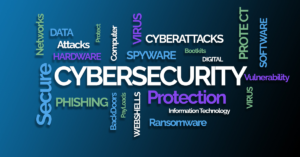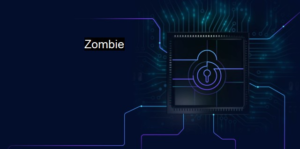
Introduction to Cyber Security
In an increasingly interconnected world, the field of cyber security has emerged as a pivotal area of focus. Cyber security encompasses a broad spectrum of practices, technologies, and processes designed to protect systems, networks, and data from cyber threats. As individuals and organizations continue to rely more heavily on technology, the relevance of cyber security has grown exponentially. The omnipresence of digital platforms has ushered in an era where ensuring the integrity and security of information systems has become paramount.
The rise of digitalization has inevitably brought about an escalation in cyber threats, with threats ranging from system hacking to phishing attacks, and even more sophisticated blackhat hacking techniques. These threats not only jeopardize account security but can also have detrimental impacts on organizations and their stakeholders, which is an alarming reality in today’s digital landscape. Consequently, the demand for professionals skilled in cyber security is on the rise, as companies strive to stay ahead of potential cyber attacks and reinforce their web security measures.
Career opportunities in cyber security are vast and varied, offering remote, hybrid, and online positions across different sectors. Ethical hacking, a vital component of cyber security, involves simulating attacks to uncover vulnerabilities, ensuring administration security remains robust against evolving threats. This includes acquiring knowledge from reputable sources such as Cisco or the EC-Council, where one can pursue free courses and certifications to enhance their skill set.
This career path not only provides financial stability but also fulfills a critical demand in our tech-driven world. Individuals with interests in system administration, network defenses, and digital forensics will find that a career in cyber security offers both engagement and purpose. As the digital landscape continues to expand, so does the necessity for skilled professionals, making this field an ideal choice for those passionate about technology and security.
Understanding the Cyber Security Landscape
Cyber security encompasses a broad range of disciplines designed to protect systems, networks, and data from various threats. One critical component of this profession is network security, which focuses on safeguarding the integrity and usability of networks. It addresses vulnerabilities and implements measures to defend against unauthorized access, misuse, or malicious attacks. As cyber threats evolve, understanding advanced secure networking protocols becomes essential for administrators in maintaining robust systems.
Another vital area is application security. This discipline aims to ensure that software and applications are secure from potential threats throughout their entire lifecycle—from initial design to deployment and beyond. By integrating security measures at the development stage, organizations can mitigate risks associated with software vulnerabilities and secure sensitive user data against breaches that can lead to significant financial loss.
Information security, often referred to as InfoSec, is centered around protecting data integrity and privacy both in storage and transit. This includes implementing encryption techniques, access controls, and data classification measures that help safeguard sensitive information. As data breaches become increasingly common, professionals must remain vigilant in understanding the risks posed by cyber criminals, such as blackhat hackers who exploit these vulnerabilities for malicious purposes.
Operational security also plays a crucial role in the cyber security landscape. It encompasses the processes and decisions regarding handling and protecting sensitive data assets. Securing operational procedures helps organizations identify their most valuable data and implement strategies to mitigate risks effectively.
In conclusion, as the digital world continues to expand, the demand for experts in cyber security has become increasingly critical. Understanding the various components and types of threats within this field is essential for anyone seeking a career in cyber security. With numerous job opportunities available in both remote and hybrid environments, aspiring professionals can leverage free courses and resources, such as those offered by institutions like Cisco and EC-Council, to enhance their knowledge and skill sets in this domain.
The Skills Required for a Career in Cyber Security
In an increasingly digital world, the demand for cyber security professionals is ever-growing. To excel in this field, individuals must possess a specific set of skills that encompass both technical and soft competencies. Understanding firewalls, intrusion detection systems, and encryption techniques is crucial for technical expertise in cyber security. Professionals are required to know how to secure systems, administer security protocols, and safeguard account security against threats posed by various types of hackers, including blackhat hackers. Familiarity with network protocols and data protection measures, along with hands-on experience with different operating systems, can significantly enhance a candidate’s employability.
Moreover, certifications like Cisco’s CCNA or those offered by EC-Council provide foundational knowledge that employers often seek. These credentials demonstrate an individual’s dedication to learning the intricacies of web security and system hacking. In addition to technical prowess, analytical thinking plays a pivotal role in cyber security careers. Professionals are often tasked with identifying vulnerabilities and formulating solutions to prevent attacks. Problem-solving abilities are equally essential, as cyber security experts must navigate complex issues and develop strategies to protect systems from potential breaches.
Soft skills are of paramount importance in this field. Effective communication is necessary to articulate security protocols to non-technical stakeholders, and collaboration is vital for working within teams on security projects. Additionally, possessing a strong sense of ethics is crucial, especially when considering the implications of system security and the professional responsibilities that accompany roles in ethical hacking. As the cyber landscape continues to evolve, so too must the skill sets of those involved in this profession, making continuous learning through free courses and online resources an integral part of one’s career development in cyber security.
Career Pathways in Cyber Security
The field of cyber security offers a plethora of career pathways, each providing unique roles and responsibilities. As the constantly evolving digital landscape necessitates advanced protection mechanisms, professionals are increasingly sought after to fill various roles, ensuring robust security systems across organizations. One prominent role in this domain is that of a penetration tester, often referred to as an ethical hacker. These individuals simulate cyber attacks to identify vulnerabilities within systems, thus helping organizations bolster their defenses against potential threats.
Another vital position is that of a security analyst, who is responsible for monitoring, detecting, and responding to security incidents. Security analysts play a key role in the administration security of an enterprise, ensuring that all aspects of the organization’s cyber security plan are effectively executed. They are tasked with analyzing alerts, performing risk assessments, and recommending enhancements to security protocols, making their role essential in daily operations.
For those aspiring to advance further, the position of a security architect is a significant milestone. Security architects design and implement systems that secure an organization’s infrastructure, addressing concerns related to account security and overall web security not just reactively, but proactively. This role requires a deep understanding of both technical and strategic aspects, making it a desirable position for seasoned professionals aiming for leadership roles in cyber security.
As job opportunities continue to grow in this field, professionals are discovering diverse pathways, with remote, hybrid, and online options becoming increasingly common. Programs offered by platforms such as Cisco and EC-Council provide free courses to help individuals assess various types of hackers and gauge their interests and skills, thus guiding them effectively in their career journeys. With the appropriate training and certification, ranging from CCNA to specialized ethical hacking courses, ambitious learners can navigate their way to successful careers in cyber security, capitalizing on the myriad of available opportunities in this vital industry.
The Importance of Certifications
In the rapidly evolving field of cyber security, obtaining relevant certifications can significantly enhance an individual’s professional profile. Certifications demonstrate a commitment to the profession and confirm one’s skill set and knowledge in various aspects of cyber security, ethical hacking, and system security. Notably, certifications such as Certified Information Systems Security Professional (CISSP), Certified Ethical Hacker (CEH), and CompTIA Security+ are among the most recognized and sought after in the industry.
These certifications not only validate an individual’s expertise but also provide a structured way to learn and understand complex concepts related to web security, system administration security, and account security. For instance, the CISSP certification is renowned for its comprehensive approach to system security, focusing on security and risk management, asset security, and security architecture and engineering. Professionals who earn this prestigious certification often enjoy increased job opportunities and ranking within their organizations.
Similarly, the CEH certification equips candidates with the skills necessary to identify vulnerabilities in systems effectively, preparing them for roles in ethical hacking and penetration testing. As cyber threats continue to grow, knowledge in system hacking techniques becomes essential, making this certification invaluable for aspiring security professionals. CompTIA Security+ serves as a foundational certification, suitable for those starting their careers in cyber security. It covers a broad range of topics, including network security and compliance, which are crucial in understanding the cyber landscape.
As job opportunities in cyber security proliferate, particularly in remote and hybrid work environments, obtaining these certifications can provide candidates with a competitive advantage. Furthermore, resources like free courses offered by organizations such as Cisco and EC-Council or platforms like Haxygen can help individuals prepare for these certifications. By investing time in learning how to achieve these credentials, aspiring cyber security professionals can enhance their employability and growth potential in this dynamic field.
Day-to-Day Responsibilities of Cyber Security Professionals
Cyber security professionals are essential in safeguarding an organization’s sensitive data and systems against a complex landscape of threats. Their day-to-day responsibilities can vary greatly depending on their specific role, the size of the organization, and the industry in which they operate. However, several core activities are common across the profession.
One of the primary responsibilities involves monitoring systems for any abnormal activity. This task requires a keen eye on network traffic and system logs, allowing professionals to detect potential security breaches or malicious activities early. Regular monitoring is crucial to maintain account security and system integrity. These tasks often require the use of advanced tools and technologies that help analyze incoming traffic, identify vulnerabilities, and determine the presence of blackhat hackers who may attempt to exploit the system.
Responding to incidents is another critical aspect of a cyber security professional’s role. In the event of a security breach, professionals must quickly assess the situation, contain the threat, and implement measures to mitigate damage. This requires strong knowledge in ethical hacking and system hacking techniques that help in evaluating and preventing future incidents. Moreover, professionals frequently conduct post-incident analyses to improve security protocols and safeguard against similar vulnerabilities.
Conducting security assessments is also part of their regular routine. This involves evaluating existing security measures, performing penetration testing, and identifying potential weaknesses within the organization’s IT environment. By staying updated with the latest security trends and employing continuous learning techniques—often through free courses or certifications such as CCNA or EC-Council—cyber security professionals enhance their skills to adapt to the ever-evolving landscape of cyber threats.
Ultimately, the role of a cyber security professional is dynamic and involves a mixture of proactive strategy and reactive measures, combining technical expertise with a passion for protection in a virtual world fraught with complexities.
Challenges Faced in Cyber Security Careers
Cyber security is a rapidly evolving field, and those who choose to embark on a career within it often face numerous challenges that can impact their job performance and overall satisfaction. High-stress situations are one notable aspect, as professionals must often respond to urgent security incidents and potential breaches in real-time. The pressure to protect sensitive information and maintain system security can create an intense work atmosphere that may lead to burnout if not managed effectively.
Another significant challenge in the domain of cyber security is the need for continuous learning. Cyber threats are constantly advancing, and the tools used for ethical hacking and defense strategies evolve accordingly. Consequently, cyber security professionals must stay informed about the latest developments in web security technologies, hacker methodologies, and attack vectors. This commitment to lifelong education often requires them to invest time and resources in gaining certifications, such as Cisco’s CCNA or those offered by the EC-Council, and participating in free courses or virtual workshops on platforms like Haxygen to remain current in their skills.
Furthermore, the diverse types of hackers—ranging from ethical hackers to blackhat hackers—pose an ongoing challenge. Each category employs different tactics that security professionals must understand and anticipate to effectively combat threats. Cyber security experts must develop strong analytical and problem-solving skills to respond to a wide array of scenarios, which can be particularly demanding for those working remotely or in hybrid environments where team collaboration may be limited.
Despite these challenges, many find that their passion for cyber security drives them to overcome obstacles. Maintaining a focus on securing systems and protecting account security often fuels a strong sense of purpose among professionals in this field. Adapting to the dynamic nature of cyber threats ultimately allows them to grow in their careers while making significant contributions to the integrity of digital worlds.
The Future of Cyber Security Careers

The field of cyber security is poised for significant growth in the coming years, driven by the relentless evolution of technology, increasing digital transactions, and the persistent threat landscape. As organizations continue to migrate to cloud environments and adopt remote and hybrid work models, the need for robust web security and system administration security has never been more critical. This creates a wealth of job opportunities in cyber security, with a particular focus on ethical hacking and the development of proactive defense strategies.
Emerging trends, such as the rise of artificial intelligence and machine learning, are transforming how cyber security professionals approach threat detection and response. New technologies are enabling the automation of routine tasks, freeing up skilled personnel to focus on more complex challenges. Moreover, innovations in security protocols and practices are required to protect sensitive data and ensure account security in our increasingly interconnected world. As the industry evolves, the ranking of cyber security roles continues to shift, with greater emphasis placed on advanced skills and specialization.
The demand for skilled cyber security professionals is projected to surge as businesses become acutely aware of vulnerabilities within their infrastructure. Not only is this field crucial in defending against blackhat hackers, but it also presents numerous job opportunities within sectors such as finance, health care, and government. Additionally, with organizations now prioritizing remote work, there are growing avenues for cyber security roles that offer flexibility and the potential for virtual collaboration. For aspiring professionals, numerous free courses are available, including offerings by Cisco and the EC-Council, to help individuals learn the skills necessary for a career in this dynamic arena. The future of cyber security careers is bright, filled with promise for innovation and multitude of job insights in an increasingly digital landscape.
Conclusion: Embracing a Passion for Cyber Security
As we have explored throughout this blog post, a career in cyber security is not only a profession for those with a technical aptitude but also a calling for individuals who are passionate about protecting valuable information and systems in our increasingly digital world. The field of cyber security encompasses various facets, including ethical hacking, web security, and account security, providing diverse job opportunities that cater to different interests and skill sets. Whether one chooses to specialize in administration security, system hacking, or as a blackhat hacker operating on the fringes of legality, there are several avenues to pursue.
Moreover, the demand for cyber security professionals continues to grow, further solidifying its status as a promising career path. As organizations enhance their security measures and seek expertise in tackling vulnerabilities, roles such as penetration testers and security analysts have emerged as essential components of modern business infrastructures. This field offers flexibility in work arrangements, with remote, hybrid, and virtual positions becoming more common, making it accessible for those who prefer different working environments.
Another crucial aspect to consider is the commitment to lifelong learning. The cyber security landscape is constantly evolving, with new threats and technologies emerging regularly. For individuals passionate about technology, the potential for continuous learning can be immensely rewarding. Online resources, free courses, and prestigious certifications—such as those offered by Cisco, Haxygen, and EC-Council—provide pathways for acquiring knowledge and skills necessary for professional growth. Understanding how to learn and adapt is vital in order to excel in this dynamic field.
Ultimately, if you possess a genuine interest in safeguarding systems and data against cyber threats, a career in cyber security promises not just employment but the opportunity to contribute meaningfully to the protection of our digital future. With dedication and a proactive approach to learning, success in this field is achievable and can lead to a fulfilling professional life.





